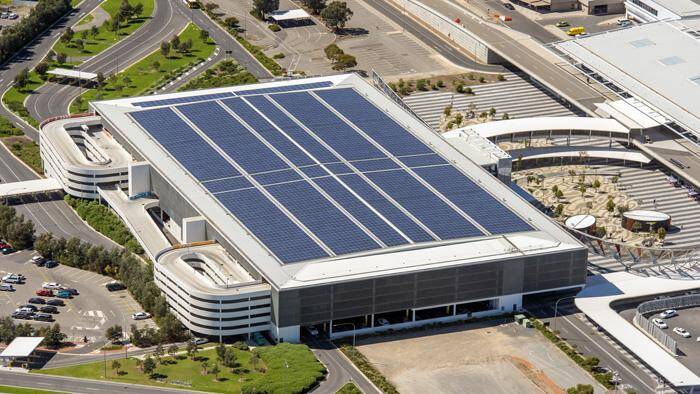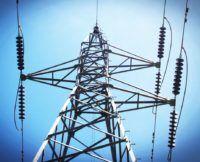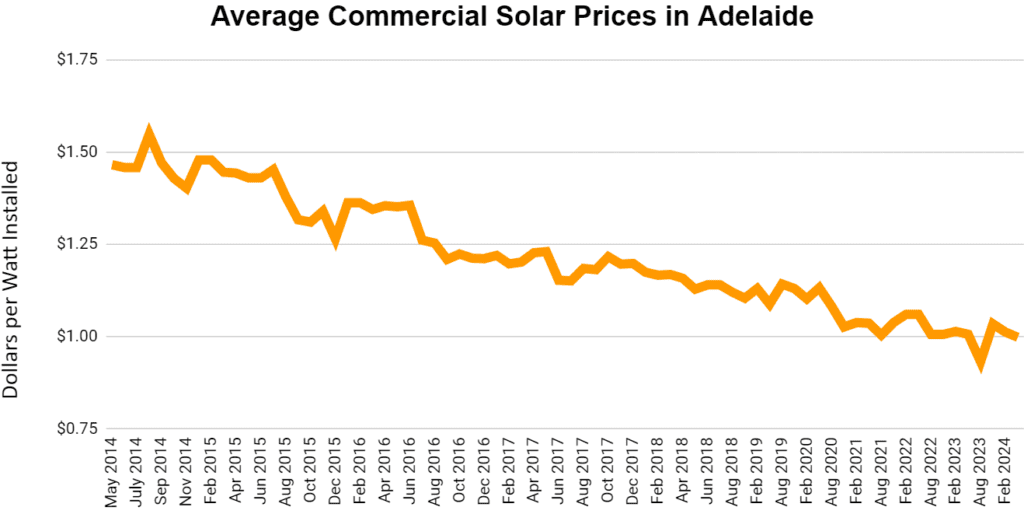Adelaide businesses are in an ideal position to benefit from commercial solar systems. Despite being in the southern part of Australia, Adelaide’s classification under STC Zone 3 means businesses can access generous federal government solar rebates, similar to those available in Queensland and Western Australia. With South Australia’s abundant sunshine, commercial solar panels in Adelaide generate substantial energy, providing a high return on investment. By leveraging the Small-Scale Technology Certificate (STC) rebates and other solar financial incentives, businesses can significantly reduce their electricity costs and environmental impact.
In this guide, we’ll dive into how much energy solar for businesses in Adelaide can generate, what savings you can expect, and the steps involved in connecting commercial solar systems to the grid in South Australia.
Based on Solar Choice’s analysis of 30 years of historical sunlight irradiance data from the Bureau of Meteorology, we can see that Adelaide typically receives 4.8 sun hours on average per day. After factoring in a typical solar power system efficiency (conservatively at 80%) that means for each 10 kilowatts (kW) of solar panel capacity installed – a solar power system will generate 3.9 kilowatt-hours (kWh) of energy. This is an annual average so the figure will be higher in summer and lower in winter.
Actual energy yields will vary depending on location, orientation & tilt angle and components used. The below table outlines the expected out from some typical solar commercial solar system sizes.
This figures are indicative only and don’t take into consideration your business’s circumstances. Solar Choice’s engineers can provide a free independent assessment review your energy bills and provide a detailed summary of the optimal system size, expected savings through the life of the project and a quote comparison from leading installers. Click the link below to get started.
Get Started With A Free Solar Business Case
All solar power systems need to be approved by South Australia Power Networks (SAPN) who are the state-wide distributed network service provider. SAPN own the electrical infrastructure (poles and wires) in Adelaide and are responsible for assessing the impact of additional generation systems that are to be connected. Depending on the size of the system the connection process will vary:
For small commercial systems that are less than 10kW per phase, there is a streamlined and no cost application process with SAPN. A Clean Energy Counil accredited installer can complete this process in around 10 minutes – so you will need to assess quotes and find a preferred supplier first.
Based on Solar Choice’s experience allow 10 business days to receive invitation to connect
For systems larger than 30kW there is a more stringent review process by SAPN and additional requirements for the design of the solar system. For all Solar Power Systems with an inverter rated 30kVA or larger there will be an application cost required with SAPN and a minimum requirement to install a Grid Protection Unit (GPU). There may be additional requirements such as export limiting that may arise as part of SAPN’s assessment. As a result, systems with a 39kW DC (solar panel rating) with a 30kVA inverter are very common to streamline the application process and avoid additional costs which don’t provide any benefits to the business.
Based on Solar Choice’s experience allow 4 to 8 weeks to receive invitation to connect
Solar Panel Systems over 200kW in inverter capacity are subject to the have the same requirements as systems over 30kVA and are subject to an Engineering Report undertaken by SAPN. Following this report, larger systems are often subject to specific design requirement of export limitation or the requirement to install SCADA network protection which can affect the ROI of a project. It is important to deal with a qualified and established solar provider for these projects with experience navigating these requirements.
Based on Solar Choice’s experience allow 2 to 3 months to receive invitation to connect
Solar Choice has pre-vetted a network of commercial solar installers across Australia over the last 12 years. As part of our service, we collect accurate price, product and warranty information from all of our network installers that can be shared with our commercial clients based on the size and complexity of their project. Solar Choice also publishes average commercial solar prices by city and system size – visit our Commercial Solar Price Index for a full summary.
| Nov-25 | 10kW | 30kW | 50kW | 70kW | 100kW |
| Adelaide, SA | $9,400 | $29,680 | $52,660 | $72,450 | $90,090 |
* Note these figures include GST and the STC benefit available under the federal government rebate
For pricing above 100kW the price per watt increases as the upfront solar rebate is no longer available – contact Solar Choice to get some indicative pricing for larger scale projects. Historically we have also observed ~40% decline in the cost of a fully installed commercial solar PV system in the last 5 years following significant improvements in Solar Panel efficiency and the increase scale of production.
For commercial solar systems over 100kW, businesses can take advantage of the federal Large-scale Renewable Energy Target (LRET), which provides ongoing incentives through Large-scale Generation Certificates (LGCs). LGCs are created based on the electricity generated by large solar systems and can be sold on the market, offering additional revenue streams for businesses installing systems above 100kW.
Figure 1 – Extract from Solar Choice Commercial Price Index
Compare quotes from leading commercial installers via the Solar Choice Portal
There are a number of different ways to finance a solar system in Australia which can provide a cash flow positive solution from day one with no upfront costs. The 3 most common options are detailed in the below table.
Read our balanced assessment of the pros and cons of each financing method and a detailed example.
Commercial solar projects follow more rigorous procurement processes and it is important to ensure you have a robust approach that will lead to a great solar investment.
While the environmental benefits of solar projects are clear, most commercial solar projects come down to an evaluation of the financial attractiveness of the project. The financial model for these projects should be developed by experienced photovoltaic engineers who are not trying to sell you a particular solution. Solar Choice offers a free service where any business can receive a customised Solar business case developed agnostically to products, brands and financing arrangements.
The best way to ensure you getting a competitive and innovation solution for your project is to engage a number of high quality solar installers with relevant experience. We often hear about projects going wrong where installers are selected on the wrong criteria and insufficient due diligence has been completed on the winning contractor. Solar Choice has developed a pre-vetted network around Australia since 2008 including all major, reputable commercial installers – talk to us about running a tender for your project.
Commercial solar prices are at all-time lows in Australia, partially due to the federal government solar subsidies available through Australia’s Renewable Energy Target (RET). For solar systems up to 100kW of Solar PV, the RET provides an up-front incentive in the form of Small-scale Technology Certificates (STCs). For systems larger than 100kW, the RET provides an ongoing incentive (until 2030) in the form of Large-scale Technology Certificates (LGCs).
Request a free solar business case and compare leading commercial installers
Since 2008 Solar Choice has consulted with over 3,000 businesses around Australia and helped develop over 800MW solar commercial and solar farm projects.
Jeff has consulted on over 20MW of commercial solar projects, ranging from SMEs to ASX top 100 companies. Jeff has also provided independent advice to 100s of residential solar, battery and EV charging customers across every state in Australia. He holds an MBA from the Australian Graduate School of Management and is an expert in business strategy and financial analysis.
Latest posts by Jeff Sykes
(see all)


